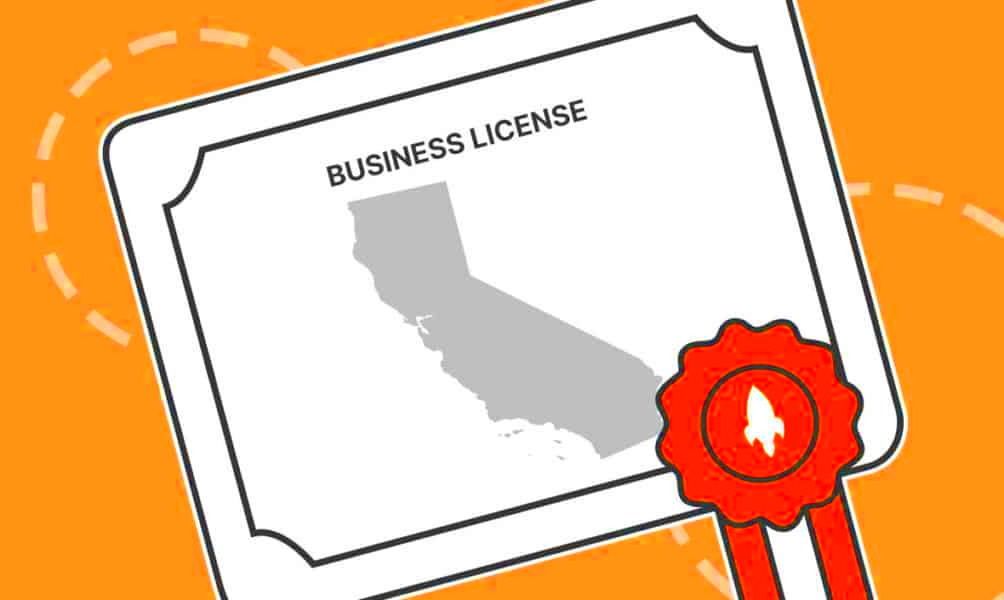Navigating California’s Business Licensing Regulations
Starting a business in California requires you to follow certain legal steps, and one of the most important is obtaining a business license. Without it, you could face penalties or even have your business shut down. A business license is essentially a government-issued permit that gives you the legal right to operate. It ensures that your business complies with local, state, and federal regulations.
When it comes to California, business licenses are given out by local authorities meaning every city or county has their own regulations. This may make the whole thing seem quite complex; however if one has accurate information, they will be able to do it easily.
Types of Business Licenses You Might Need

Based on the kind of firm you have, a lot of different types of business licenses exist in California. Below are some of them:
- General Business License: This is required for most businesses operating within a city or county.
- Professional Licenses: If you’re in a profession like law, medicine, or real estate, you’ll need a specific license for that field.
- Health Department Permits: For businesses in the food or health industries, such as restaurants or salons, a health permit is required.
- Sellers’ Permit: If you’re selling goods, especially retail, you will need a seller’s permit from the California Department of Tax and Fee Administration.
- Specialty Permits: Depending on your location or business type, you may need additional permits like zoning permits or environmental impact approvals.
According to industry and region, licensing needs for companies should be researched before starting up operations.
Steps to Apply for a Business License

In California, obtaining a business license can be a lengthy process. Here is how it can be simplified into some few steps:
- Determine your license type: The first step is to figure out what type of business license or permits are required for your specific business and location.
- Register your business: Before you can get a license, your business must be legally registered with the state. This involves choosing a business structure (LLC, corporation, etc.) and registering your business name.
- Fill out the application: Most cities and counties provide online application forms. You will need to provide information about your business, such as its location, ownership, and the type of services or products you offer.
- Pay the necessary fees: Licensing fees vary by location and industry, so make sure to check with your local government. These fees are usually paid at the time of submitting your application.
- Submit and wait for approval: After submitting your application, the approval time can vary. Some licenses are issued immediately, while others may require inspections or additional review.
Once your business license has been received, it is vital to note that numerous licenses necessitate routine renewal; hence, always keep in touch with your local licensing authority.
Renewing and Updating Your Business License
The next thing to do once you have your business license is keeping it updated. California requires most business licenses be renewed annually but this may differ from one city or county to another. It’s important to keep your license current as you may face fines or penalties for operating with an expired license.
When you want to renew or update your business license, these are some of the procedures that you should take:
- Check the expiration date: Business licenses usually have an expiration date, and the renewal process typically starts a few months before that date.
- Renewal notifications: Some cities or counties will send out renewal notices, but it’s best to be proactive and not rely solely on reminders.
- Submit renewal application: The process is often as simple as filling out a renewal form online or in person. Be prepared to update any business information that has changed, like your address or ownership details.
- Pay renewal fees: Renewal fees vary based on the type of license and the location of your business. Fees must be paid at the time of renewal.
- Review for updates: If your business has expanded or shifted focus, you might need to update your license or even apply for additional permits.
Some benefits of managing updates and renewals properly include adherence to local laws by your business, absence of anarchy in your firm hence continuous operation etc.
Common Challenges in California’s Licensing Process
It might take you some time before you fully understand what it takes to obtain a business licence in California.This includes being aware of all your local rules, which makes it difficult for most individuals who want to start their own businesses but don’t know anything about them.The following are some of the challenges faced by many entrepreneurs:
- Understanding local requirements: Each city or county in California may have different rules. This can lead to confusion, especially for new business owners.
- Long processing times: Depending on the complexity of your business or the type of license you’re applying for, processing times can vary. It’s important to plan ahead and apply early.
- Complex applications: Some businesses may require multiple licenses or permits, which can make the paperwork more complex than expected.
- Inspections and approvals: Certain businesses, such as those in food service or construction, may need to pass inspections before a license is granted. This can add time and stress to the process.
- Keeping track of renewals: As licenses need to be renewed regularly, business owners often find it challenging to remember renewal deadlines and complete the paperwork on time.
Local agencies or legal professionals should always be consulted to avoid such conventional hindrances as one can easily be overset with numerous permits or complicated rules.
Consequences of Operating Without a License
Operating a business without the permit in California could have serious repercussions. Though it can be tempting not to comply with the licensing process, risks far exceed comfort. A few of the possible consequences include:
- Fines and penalties: Operating without a license can result in hefty fines. The exact amount depends on the type of business and location, but penalties can be as high as thousands of dollars.
- Business closure: If you’re caught operating without a license, local authorities may shut down your business entirely until you can obtain the proper license.
- Legal trouble: In some cases, operating without a license could lead to lawsuits or other legal actions, especially if your business caused harm or violated public safety regulations.
- Damage to reputation: Running a business without the necessary permits can damage your reputation within the community, making it harder to attract customers or gain trust.
- Difficulty getting licensed later: Once authorities discover you’ve been operating without a license, it may be harder to apply for the proper license in the future.
The end result of not having a license can bring about serious repercussions for your business. It’s always better to handle licensing upfront so that you can avoid future pain and ensure that your business stands legally right.
Tips for Maintaining Compliance with Licensing Rules
Isn’t it amazing that so many entrepreneurs think of getting a license only? However, there is more to compliance than just obtaining a permit. In fact, you must also be in conformity with licensing requirements every following year. Here are some practical suggestions which will help maintain your business status:
- Set reminders for renewals: Keep track of when your licenses need to be renewed. Whether you use a digital calendar or an app, set reminders well in advance of the expiration date to avoid any last-minute rush.
- Regularly review local regulations: Business laws can change, so it’s important to stay updated on any new regulations or changes to existing ones that might affect your business license.
- Maintain accurate records: Always keep copies of your business license, renewal forms, and any correspondence with licensing authorities. This ensures you have a clear paper trail if any issues arise.
- Conduct annual compliance checks: Once a year, review all of your business licenses and permits to ensure they are still valid and that your business meets any updated criteria.
- Get professional help when needed: If you’re unsure about any part of the process or face a complicated renewal, don’t hesitate to consult with a legal professional or compliance expert.
By keeping to the advice given out, one will avoid missing deadlines and breaking regulations thus making their company effective.
Frequently Asked Questions About Business Licensing in California
The following are questions that most business owners are likely to ask about California’s process of obtaining licenses for businesses:
- Do I need a business license for an online business? Yes, if your business is based in California, you will still need a license, even if it operates entirely online. Check with your city or county for specific requirements.
- How much does a business license cost? The cost of a business license in California varies by city and type of business, but it can range anywhere from $50 to several hundred dollars.
- Can I apply for a business license online? In many cities and counties, yes. Most local governments offer online portals where you can submit your application and pay the necessary fees.
- What happens if I move my business to a new location? You will need to update your business license to reflect the new address. This often requires submitting an updated application to your local authority.
- Is a business license the same as a seller’s permit? No, a business license allows you to legally operate, while a seller’s permit is required if you are selling goods and need to collect sales tax.
If you have further queries regarding the licensing procedure, it is advisable to get in touch with your nearby city or county office for detailed advice.
Conclusion
For any legitimate business operation, acquiring and continuing a business permit in California may appear tedious, however it is an important stage. Failure to keep up with the licensing requirements of your firm may end up costing a lot of money through fines. So, for example, if you’re new to this whole process or need a refresher curso regarding the renewal procedure, we have got you covered so that you may be able to run an uninterrupted business with timely delivery of goods and services. There are very useful tips to remain in compliance as you grow your enterprise which include: get informed; set reminders for yourself; ask for assistance where necessary.
Legally operating businesses require having a good level of operational integrity hence it is paramount to have licenses that are correct since they instill confidence in customers.


